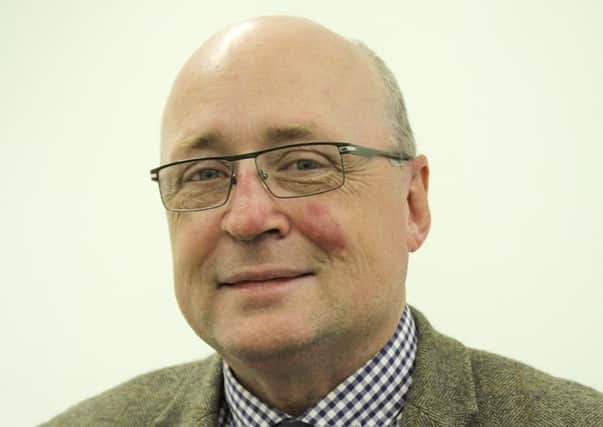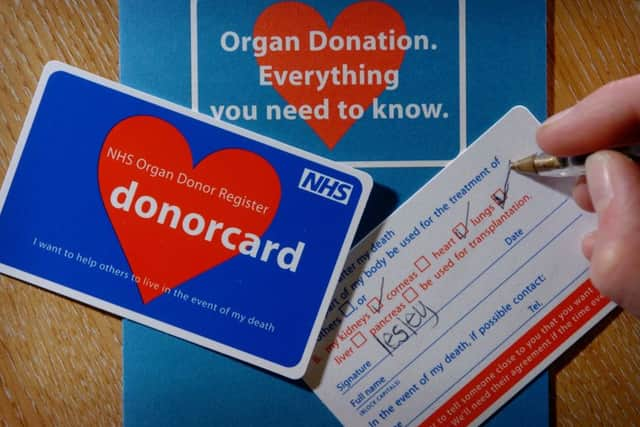Dr Calum MacKellar: Opt-out organ donor system open to charges of ignoring informed consent


In contrast, an opt-in system enables persons to specifically instruct that their organs be removed for transplantation after death (for example, by carrying a donor card, informing relatives or joining a register) while the organs from all those who have not left such instructions cannot be removed.
Debate has always existed about which system would enable more patients to benefit from life-saving transplants with those supporting either an opt-out or an opt-in system being similarly motivated by compassion. Both want to see an increase in the number of organs for transplantation though they disagree on which system would be most effective and ethical.
Advertisement
Hide AdAdvertisement
Hide AdThe Scottish Government, apparently, believes that a specific opt-out system would increase organ transplantation rates. However, when Wales enacted a similar opt-out system, in December 2015, this did not have the expected positive result. In fact, the number of deceased donors went down from 64 individuals in 2015/16 to 61 individuals in 2016/17 with the number of organs used from deceased donors going down from 168 to 135 during the same period.


In this regard, it has always been doubtful that the opt-out system, itself, would make a difference. Spain is leading the world in deceased organ donation but as Dr Matesanz, a past director of the Spanish Organ Donation Office, argued: “Opting in, opting out in my opinion means nothing.” In fact, he explained that although the opt-out system had been in place since 1979 in Spain, organ donation rates had remained low until changes to the organisational structure were made.
But even if opt-out systems did increase the number of organs for transplantation some very real ethical problems remain with such schemes.
This is because opt-out systems seek to increase the number of persons who can be considered as donors as a result of some people’s unwillingness to think about death, lethargy or some other reason for not making a decision. However, for a government to use, in such a way, a refusal to make an important decision may be considered irresponsible. It may even undermine the very manner in which it should encourage accountable citizenship.
In Scotland, just over 40 per cent of the population are on the organ donor register, though over 90 per cent support organ donation. It should be noted, however, that the principle of informed consent does not relate to good intentions but responsible decisions.


Another reason why opt-out systems raise serious ethical difficulties is that it is impossible to be sure that all the persons in a country are aware of the system. From the very limited information available concerning other countries where opt-out systems have been in place for some time, evidence shows that only a minority of the population are actually aware that their organs can be removed if they say nothing.
To be sure, it is possible to question whether opt-out systems are actually using this situation to increase the number of organs available but the very fact that a change is being proposed from an opt-in system (where such a situation cannot take place) to an opt-out system (where it can) is significant. In a way, changing to an opt-out system could be seen as using a person’s ignorance of the scheme to increase the number of organs for transplantation which could be considered as a form of deceit.
Of course with the Scottish Government proposal nearest relatives will be asked to give their authorisation when a deceased person has not left any specific instructions. But serious mistakes may then happen because there is no certainty that the decision of the nearest relative is a true reflection of the wishes of the person at the time of his or her death.
Advertisement
Hide AdAdvertisement
Hide AdIt is thus inappropriate for the Scottish Parliament to support an opt-out system that may not provide real advantages to patients whilst compromising the concept of informed consent. This could even undermine public confidence in the transplantation system and eventually reduce the number of organs available.
More can be done to increase the number of organ donors for transplantation under an opt-in system while, at the same time, encouraging societal responsibility.
Dr Calum MacKellar, Director of Research of the Scottish Council on Human Bioethics